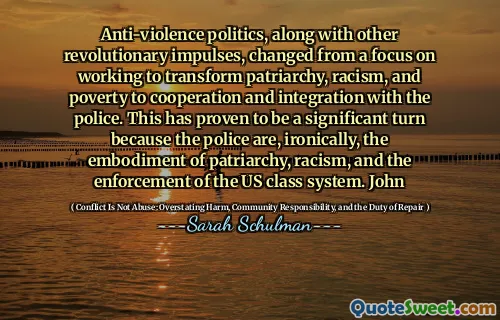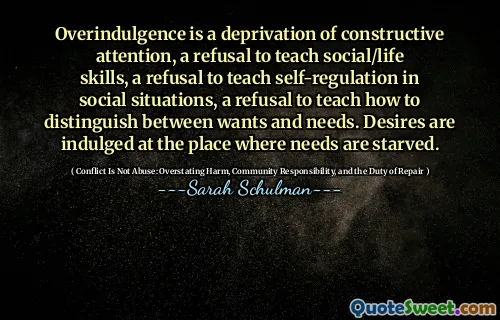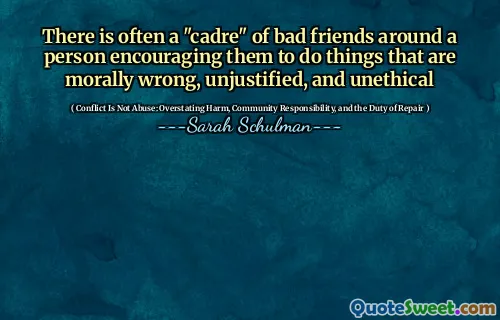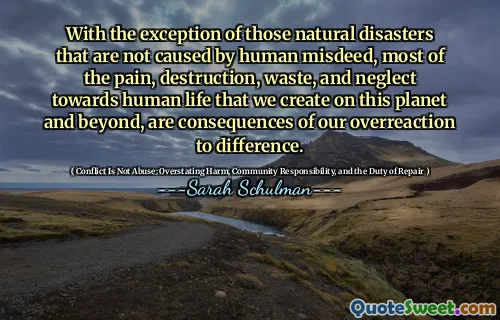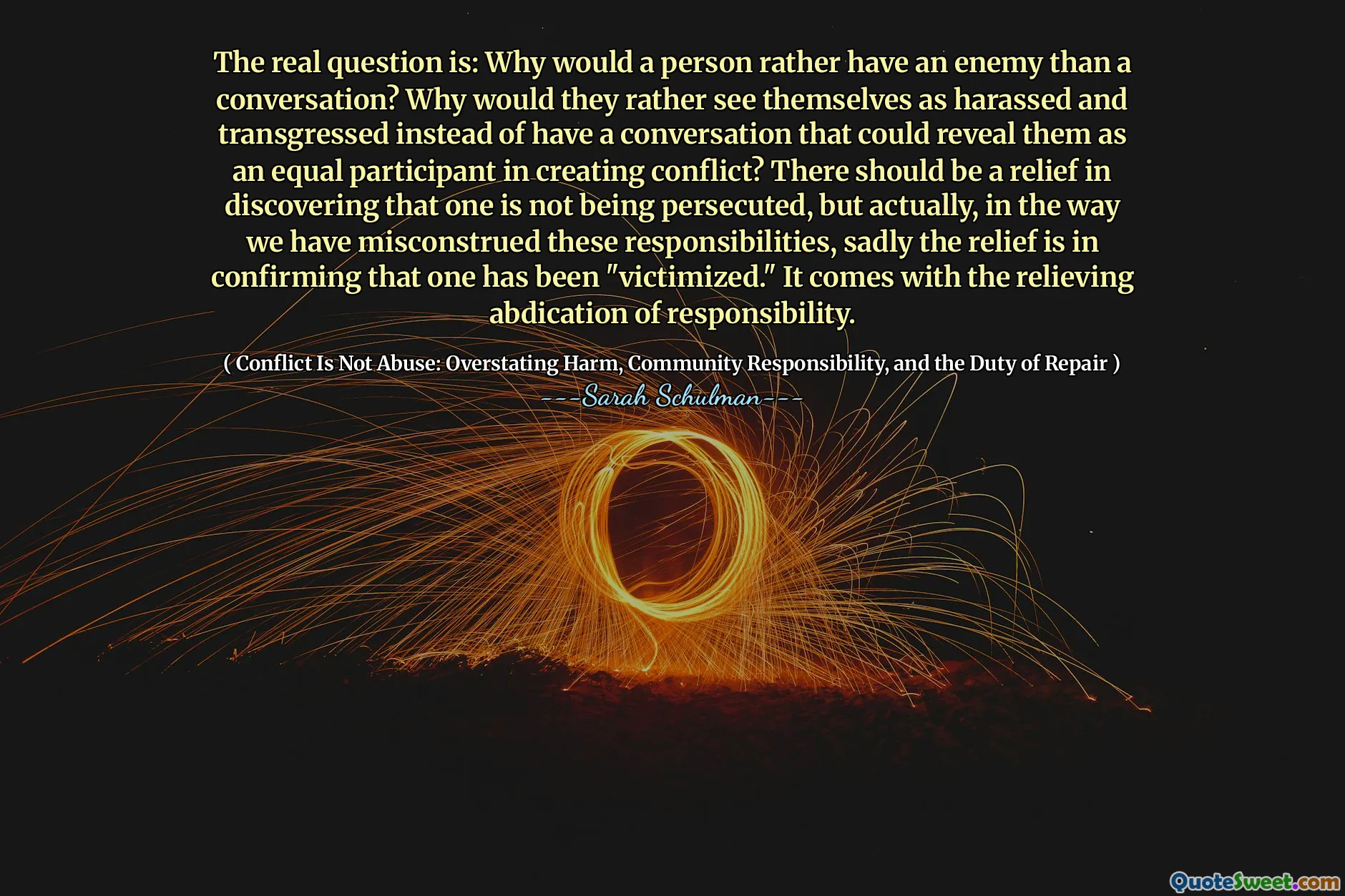
The real question is: Why would a person rather have an enemy than a conversation? Why would they rather see themselves as harassed and transgressed instead of have a conversation that could reveal them as an equal participant in creating conflict? There should be a relief in discovering that one is not being persecuted, but actually, in the way we have misconstrued these responsibilities, sadly the relief is in confirming that one has been "victimized." It comes with the relieving abdication of responsibility.
In her book "Conflict Is Not Abuse," Sarah Schulman poses a critical question regarding human interactions: why would an individual choose to see themselves as a victim rather than engage in dialogue? This choice often leads to a perception of harassment and conflict, avoiding the opportunity to participate equally in resolving issues. Schulman suggests that many people find comfort in identifying as victims, which allows them to avoid the complexities of responsibility and the potential for constructive conversation.
This mindset not only distorts the understanding of relationships but also perpetuates conflict. By embracing a victim narrative, individuals may feel a false sense of relief, confirming their status as persecuted rather than actively participating in conflict resolution. Schulman's work encourages readers to reconsider their perceptions of responsibility and to recognize the value of open dialogue, which can foster mutual understanding and help address breaches in relationships.
